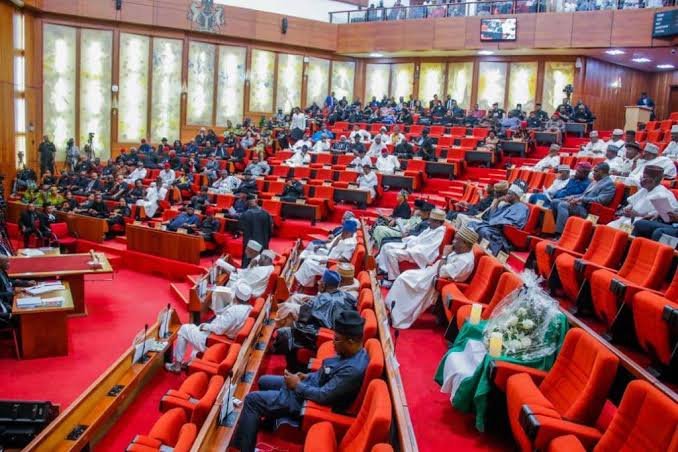Senate to debate on diaspora voting bill this week – Senate Leader Bamidele

Opeyemi Bamidele, Senate Leader, has stated that the Red Chamber will address diaspora voting rights this week as part of the ongoing Constitutional revision.
According to a statement issued on Monday, Bamidele stated this during a virtual diaspora dialogue over the weekend, citing the National Assembly’s decision to examine diaspora voting rights and other concerns affecting Nigerians in the diaspora.
The Senate leader had previously sponsored a move to study the Constitution.
Justifying the National Assembly’s decision to examine the 1999 Constitution, the Senate leader stated that diaspora voting rights would be included in the ongoing constitution review.
He said,
“Let me tell you some good news. Not that we are trying to bring the bill back. The bill is already on the floor of the 10th Senate. Exactly two weeks ago, we had the first reading of the bill. It has already been scheduled for a second reading.
“Definitely, as the Leader of the Senate, I can assure you that we will consider the second reading of the bill this week. After this stage, it will be referred to the Senate Committee on the Review of the 1999 Constitution.
“As it presently is, the constitution review committee is chaired by the Deputy President of the Senate. As the leader of the Senate, I am the Vice Chairman. You can be rest assured that I am with you in this effort.
Bamidele added,
“I see this fight as a generational fight. It is about your children. It is also about ensuring greater inclusion in our electoral process. We cannot be interested in what is coming from you, but deny your right to vote.
“Diaspora voting is a right that must be recognised in the Constitution of the Federal Republic of Nigeria. After the passage of the bill, it will be taken to the House of Representatives for concurrence.”
The Senate leader explained that after the concurrence by the House of Representatives, the bill would be transmitted to the state Houses of Assembly and two-thirds of the 36 state Houses of Assembly must approve to become effective.
He further urged the stakeholders to engage governors of the 36 states of the federation and Speakers of the State Houses of Assembly to ensure the passage of the bill into law.
